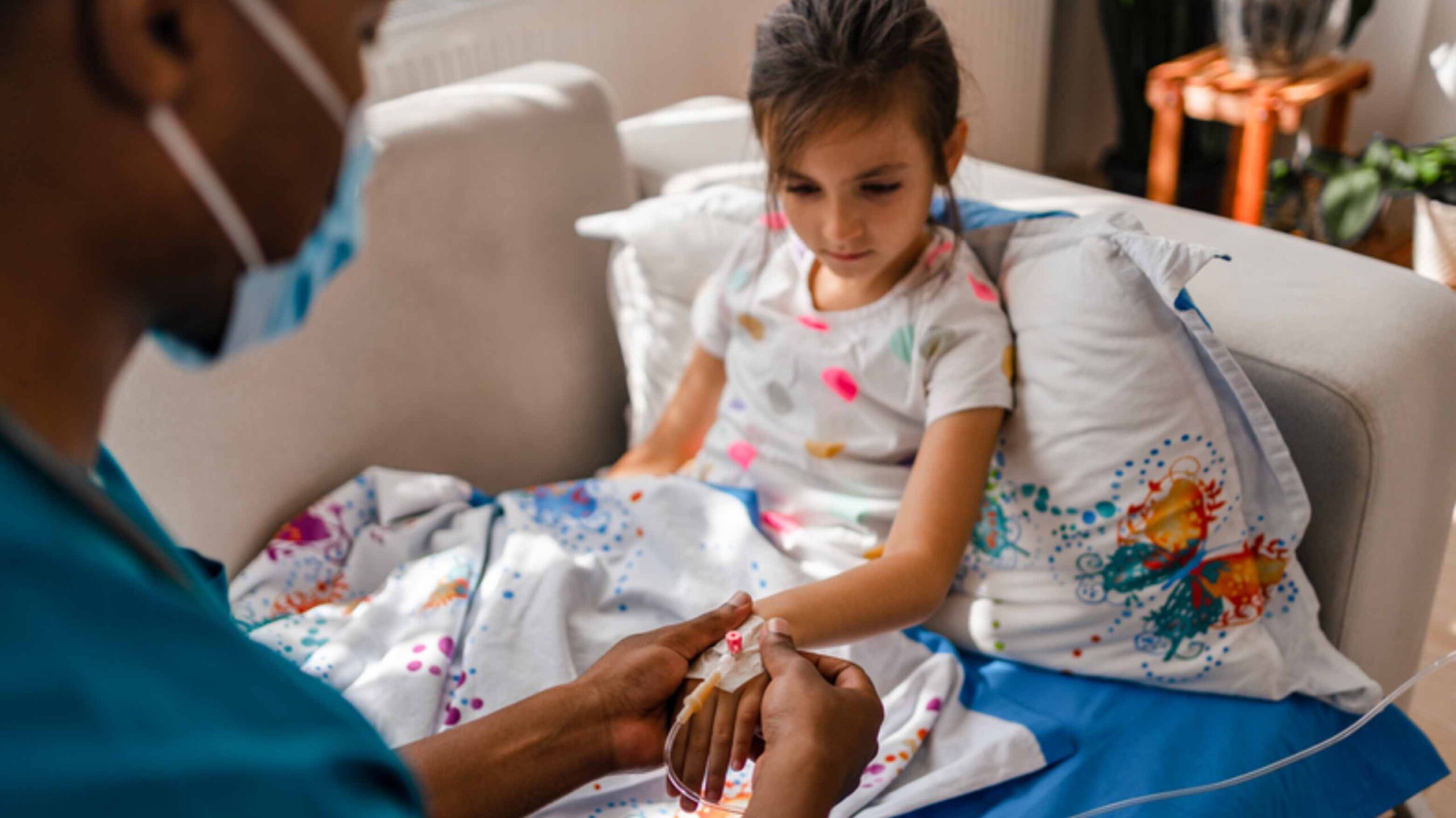When assisting your aging parent, partner, or another family member with their healthcare needs and living arrangement, you’ll often come across the term “geriatric care.” What is geriatric care, exactly, and is it necessary for your loved one’s well-being?
Geriatric providers care for elderly individuals, most of whom are 65 or older. The specialty covers a range of services revolving around care management and specialized medical care.
Many of today’s seniors want to age in place rather than move into a nursing home or assisted-living facility. But living at home doesn’t eliminate the need for assistance, which is where the benefits of home care come in. Here’s what you should know about geriatrics, including the different categories and what to expect from this type of care.
The Importance of Geriatric Care
While looking after an aging family member, you might be wondering if or when you should hire professional assistance. The need for specialty services or around-the-clock care doesn’t typically arise overnight.
Age-related medical conditions are common, and they’re often accompanied by declining mental and physical abilities. In most cases, aging adults will start to need a little assistance and then gradually require more help to maintain optimal health while remaining safe in their homes.
Geriatric care is a collaborative effort between caregivers and medical professionals. The ongoing goal is to manage an individual’s health conditions, support their well-being, and provide a safe living environment. While the need for professional assistance isn’t always sudden, it’s important to arrange for care before your loved one gets to a point where they’re unsafe living alone.
When Is Geriatric Care Needed?
There’s no one-size-fits-all time when geriatric care is needed. As we mentioned, the specialty focuses on people 65 and older, though one doesn’t automatically need geriatric care on their 65th birthday. Some may require support early on, while others might not need care until they’re well into their 80s.
Faltering physical and mental ability is something virtually every aging adult will experience. These health challenges can include poor eyesight, declining hearing ability, worsening coordination, diminishing strength, memory problems, and other neurological issues.
Age-related health conditions can affect a person’s ability to perform basic self-care tasks on their own. In the healthcare community, these self-care tasks are referred to as activities of daily living (or ADLs). Most ADLs involve personal hygiene, such as bathing, grooming, and dressing, or tasks relating to eating, such as preparing food, retrieving water, and self-feeding.
ADLs can also involve taking medications, home maintenance, communications, and bill pay. When an individual can’t complete their activities of daily living, it’s usually a sign they need some form of outside support.
Aside from struggling to meet their self-care needs, many seniors require care for chronic diseases, injury, and other medical conditions. Geriatric care can be implemented at any point as needed. Some people require care temporarily following surgery or during illness, while others need ongoing assistance.
Types of Geriatric Care
There are two main categories of geriatric care: geriatric medicine and geriatric care management. They work in conjunction to provide patients with the best possible health outcomes. Find a breakdown of each type of geriatric care below.
What Is Geriatric Medicine?
Geriatric medicine (sometimes called geriatrics) is a medical specialty focusing on preventing, diagnosing, and treating diseases and disabilities in elderly individuals. This type of geriatric care monitors and treats patients for a broad range of age-related medical concerns, such as dementia, Alzheimer’s disease, cancer, heart disease, diabetes, multiple sclerosis (what causes Multiple Sclerosis?), Parkinson’s disease strokes, incontinence, injuries from falls, and polypharmacy (potentially dangerous interactions between multiple medications).
A geriatric physician (or geriatrician) has the same education as a primary care doctor, plus an additional two years of specialized training on the complex health needs and chronic diseases affecting older adults. Geriatric nurses are registered nurses (RNs) with an additional 30 education hours and at least 2,000 clinical practice hours in gerontological nursing.
What Is Geriatric Care Management?
Geriatric care management focuses on coordinating and planning care for an aging adult with functional impairments or a specific medical condition. Besides assisting them in meeting their healthcare needs, the intent is to improve the elderly individual’s quality of life while helping them maintain their independence.
A geriatric care manager usually has training in gerontology (the study of aging), social work, or nursing. They’re knowledgeable about the costs and availability of various health services, helping seniors and their families navigate the complexities of arranging for care. The services provided by care managers sometimes also focus on emotional support for aging individuals and their loved ones as they come to terms with the need to hire help.
What Does a Geriatric Care Manager Do?
The primary role of a geriatric care manager is to plan and coordinate healthcare and other services for seniors. While they have the bandwidth to provide support for a broad range of issues, their specific duties depend on the unique needs of the elderly individual.
Geriatric care manager services might include:
- Evaluating an individual’s in-home care needs
- Assessing the safety of an individual’s current living situation
- Family consulting about the challenges of elderly care
- Suggesting which types of care may be beneficial
- Developing short-term and ongoing care plans
- Recruiting, hiring, and arranging for care
- Facilitating medical care and making referrals
- Relocation assistance
- Insurance coordination
- Continually monitoring an individual’s health needs
- Making care plan adjustments as needed
- Keeping family members informed about the state of their loved one
- Emotional support
- Providing respite for family caregivers
Care managers are well-versed in the complicated physical, psychological, social, and emotional needs of aging adults. They know the medical terminology and can interpret insurance policies, which is an immense help for many families. Not only that, but a geriatric care manager can act as a professional buffer to smooth out conflicts among family members, as well as between families and providers.
Home Health Care Services for Seniors in New York City
Here at Alliance Homecare, we provide best-in-class in-home care throughout the New York metro area. Our geriatric care services include both medical care and care management.
We’re very selective in our hiring process, ensuring only the most exceptional professionals join our team. The registered nurses at Alliance have specialized knowledge of elderly care needs and years of experience working at highly regarded medical facilities. They can assist with a variety of clinical needs, including wound care, post-surgical recovery, infusions, IVF therapies, catheter care, cardiac oversight, pulmonary care, care for chronic illness, and hospice.
Our geriatric care managers are here to coordinate our all-inclusive in-home services. They’ll help you create a care plan with a designated team of providers, arrange for visits by an RN, and facilitate referrals within our trusted healthcare network.
Additionally, our home health aides in NYC can assist with bathing, dressing, transferring, feeding, grocery shopping, medication management, light housework, and other activities of daily living. We can also provide companionship and respite care in New York for individuals and their families as needed. Experiencing early signs of multiple sclerosis? Geriatric care might be something to start looking into.
To learn more about the in home nurse care services we offer or schedule a care assessment, contact us at Alliance Homecare today.
External sources:
- https://www.nia.nih.gov/health/what-geriatric-care-manager
- https://www.alz.org/media/greatermissouri/Geriatric_Care_Management.pdf
- https://www.sciencedirect.com/topics/nursing-and-health-professions/geriatric-care
- https://health.usnews.com/best-assisted-living/articles/when-to-hire-a-geriatric-care-manager
- https://www.hopkinsmedicine.org/health/wellness-and-prevention/specialists-in-aging-do-you-need-a-geriatrician





